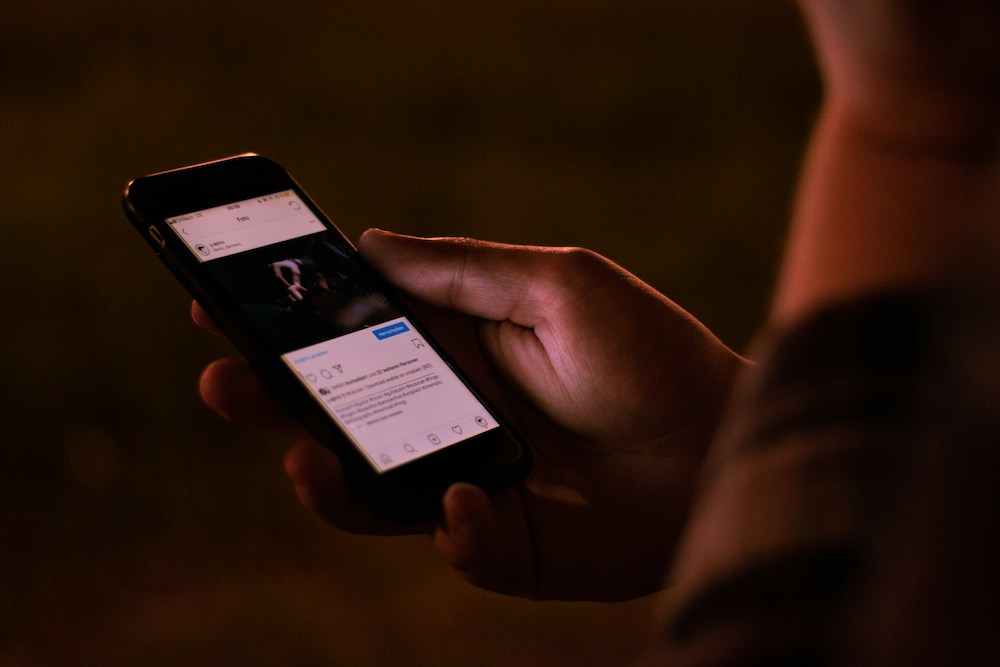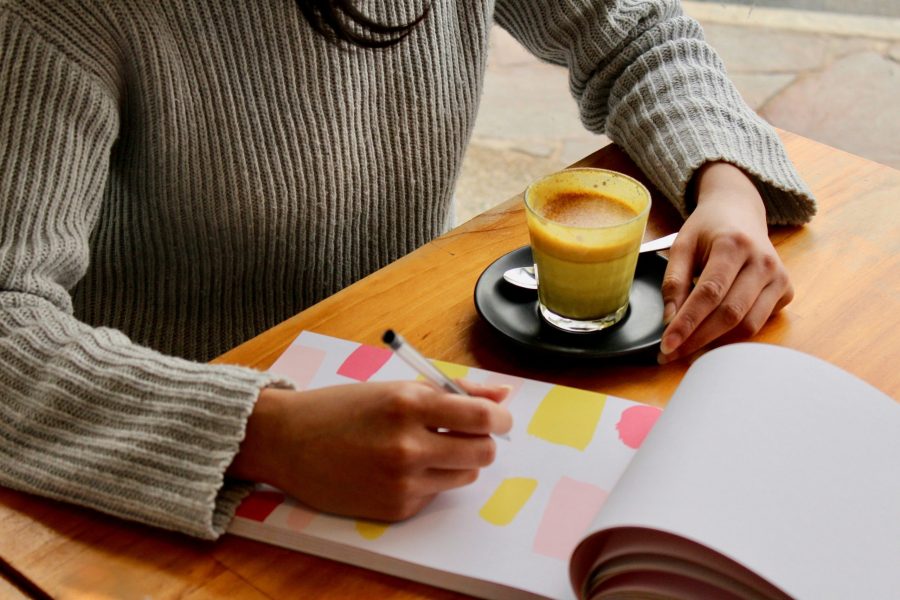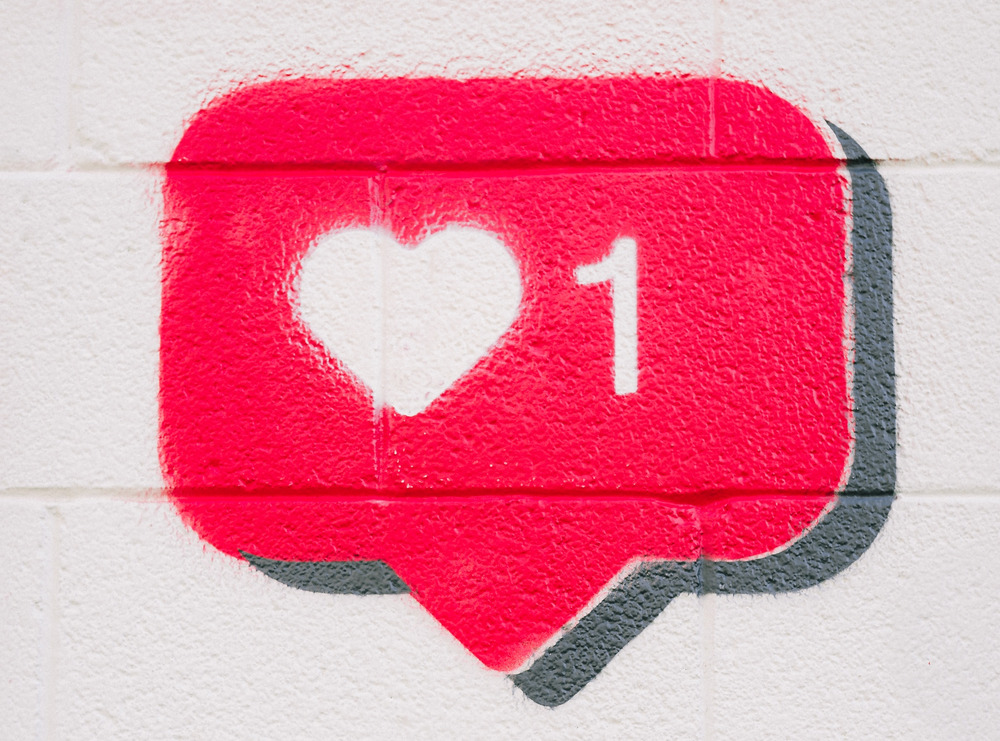interviews
Finding Self-Worth by Stalking Your Instagram Crush IRL
Beth Morgan, author of "A Touch of Jen," on how social media changes the way we see ourselves

“Whether you want to achieve your potential in a Fortune 500 company, found a small business, or break through the obstacles in an unsatisfying marriage, my guidelines for self-fulfillment can help you identify Signifiers of Flow.”
“The Apple Bush”, authored by a “healer, lifestyle expert, and spiritual counselor,” is the fictional new-age, wellness-adjacent guiding force in A Touch of Jen — Beth Morgan’s gripping debut about the interpretation of the world through an ever-evolving system of signs. Or, in less Saussurean terms, a novel about how Instagram leaks into our lives, changing and shaping how we inhabit our selves.
Following the story of Alicia and Remy—a couple obsessed with the online persona of Remy’s former co-worker—A Touch of Jen invites readers into a world of extreme self-consciousness and class envy, where the “sensation of being on display” is both coveted and dreaded. As the protagonists unexpectedly find themselves invited to a surfing trip in the Hamptons with Jen’s inner circle, they try hard to fit into a group of wealthy, beautiful people.
From here on out, Morgan’s narrative develops a darkly spiraling pace, simultaneously exposing and blurring the distinction between fantasy and reality. All the while, “The Apple Bush” guides the characters’ journeys through its seductively vague platitudes; for example: “details that might seem like trivial parts of your ordinary life are actually signs—Signifiers of Flow helping you to achieve that Consummate Result.”
But the result, or desire, is growing increasingly unclear. As Remy wonders: “What happens next? Do they just keep on talking about Jen forever, until she gets old? Then what?”
Then what, indeed. Morgan’s debut book is, in many ways, the grimmest possible answer to that question—an exploration of how contemporary culture has made self-actualizing structuralists of us all.
Richa Kaul Padte: There’s this constant tension in A Touch of Jen between “authenticity” and “fakeness”, where inhabiting the former and exposing the latter feels like a kind of ethical imperative. Except the more we live by these arbitrary categories, the less sure of ourselves we grow. For example: “[Remy] is so overwhelmed by the sensation of disclosing something true that he forgets what he is saying is a distortion of the truth.” This sentence itself feels like a painful truth that haunts every “vulnerable” Instagram post I’ve ever made. What’s up with that?
Beth Morgan: I think that in trying to communicate any kind of personal truth, it’s inevitable that we unconsciously create narrative. Narrative is something we often view as an inherent good—storytelling helps us live and all that—but there can be something distorting about how narrative allows and even encourages us to prioritize certain facts over others. Whenever we try to write something “true”—and I think this applies to the “vulnerable” Instagram post—we can’t help organizing, smoothing, and simplifying reality.
Whenever we try to write something ‘true’—and this applies to the ‘vulnerable’ Instagram post—we can’t help organizing, smoothing, and simplifying reality.
Personally, I’m someone who doesn’t perform vulnerability on social media—I’m both suspicious of and intimidated by the project of constructing a public persona that is somehow also authentic. (Instagram is more comfortable for me than Twitter because it involves less writing, though of course, it’s not narrative-free.)
As soon as I start trying to express myself as myself, it often feels fraudulent because I can feel myself creating narrative. That’s why fiction is so liberating—I don’t have to worry about expressing a personal truth that may or may not truly exist. If there’s anything that could be called personal truth in fiction, it might have something to do with the specific ways that people’s narratives about themselves break down.
RKP: So much of your book has to do with how the internet and social media teaches us to see. Remy says: “Maybe this will sound crazy. But I have this picture in my head. I think maybe, if I could make the picture real, or real enough, I’ll feel better.” This is Remy’s pursuit through the text, but even when he does arrive at “the picture,” he can’t get “inside it”.
The commonly held idea that we “live on the internet” makes sense—right up until the moment we realize that we actually…don’t. How can we learn to see ourselves outside the logic and grid of commercial social media? (Asking for a friend.)
BM: Social media—especially Instagram—definitely does allow us to place ourselves literally inside a picture. And I think the impulse to imagine ourselves in a picture has something in common with the impulse to place ourselves inside a narrative.
What feeds this impulse is not necessarily just social media. One of the main influences on A Touch of Jen was Tom McCarthy’s Remainder, in which the main character creates these elaborate reenactments that he places himself inside in order to feel like that he’s actually living life—that he’s inside the picture. Early on in the book the character watches Mean Streets and is struck by the way that Robert De Niro—even though he’s acting—seems much more authentic in his movements—less like he’s performing—than people do in “real life.”
There is something that feels much more consummated about actions as they occur in movies, which is why I came up with the phrase “consummate result” for the way the book’s fictional self-help text “The Apple Bush” talks about self-actualization. In a movie, everybody moves gracefully or fluidly, without self-consciousness. And if we’re doing things fluidly in real life we feel as if we’re in a movie. In an early scene when Remy is in the restaurant, he’s briefly conscious of how good he is at his job—how when he gets in the zone, there’s something balletic about the way he moves through space. This contrasts with how socially awkward he and Alicia are—especially around these people who are richer than they are and whose social codes and cultural referents they’re struggling to pick up on.
So I think aspiring to be “inside in the picture” is partly about fitting in or finding a place in the world that makes us feel actualized. Instagram interacts with that desire in a very intense way though I think the fraught nature of this desire is more a problem of competitive individualism and our current economic system than it is of commercial social media specifically, since being “inside the picture” most often means being the protagonist of our own individualistic narrative.
Remy does feel like he’s “in the picture” to some extent when he’s at work—he’s good enough at his job that he’s able to take some amount of pleasure in it. But his job is also low status and low paying. There’s this idea that someone of his background is a failure if he’s working in service. There’s this imperative to stand out and get ahead, not just for the sake of achieving status and respect, but also in order to attain a basic level of economic security. I don’t think that for Remy the problem is his inability to think outside the grid of social media, but the precarity, alienation, and pressure to get ahead that so many people feel today.
RKP: All the platitudes that run through your book—“Flow”, wellness, self-improvement—are annoyingly very compelling. I hate that stuff, but at the same time, when I read a sentence like “the power of something as simple as a positive mindset and openness to the world,” I feel myself getting sucked in. At one point, Alicia speculates whether Jen and her friend Carla “actually practice the self-improvement techniques, or if their interest is purely aesthetic. “ Is that where the power of internet “wellness” lies—an aesthetic appeal?
BM: I find those things compelling too! And despite the distinction Alicia is making, I don’t think that aesthetic appeal is necessarily a damning quality. I think aesthetics are always a component of belief systems. The Catholic Church wouldn’t exist without aesthetics! When I was a little kid at a Presbyterian church camp, I loved my youth retreat t-shirts that said “Fruit of the Spirit” in what seemed like “cool” lettering.
Someone who feels secure doesn’t need to base their sense of self-worth on their internet presentation because they’re getting it from other places.
We’re attracted to aesthetics because we think that they communicate some inherently valuable quality. As for Jen and Carla, I think they enjoy the aesthetics of “The Apple Bush” (the fictional cosmology I introduce in my book) but they also genuinely long for what it promises. If there’s anything I would criticize about “The Apple Bush,” it’s the highly individualistic philosophy—the fact that like most self-help books, it’s focused solely on personal happiness rather than on ethics or collective happiness.
And the way that I envisioned it, there’s actually some irony in Jen and Carla’s approach to the aesthetics of “The Apple Bush.” It’s not supposed to be a self-consciously cool book, but its uncoolness is part of its cachet. Probably what attracts Jen and Carla to a book like this is that it feels authentic and earnest rather than having aesthetics calibrated to reeling them specifically in.
RKP: Right on page 1, we’re introduced to a role-playing scenario that Alicia and Remy often enact, where “Alicia imagines herself morphing into Jen”—and from then on (and sometimes unpredictably), it’s Alicia-as-Jen that Remy interacts with. This seemed fairly absurd and amusing to me until later in the book when Remy observes Alicia “putting on the expression she wears around other women.” This immediately made me wonder what sort of expressions I put on around X or Y people (as T.S. Eliot writes, “prepare a face to meet the faces that you meet”), and whether role-playing is in fact integral to the way we inhabit identity. Is it?
BM: I would agree with that 100%. We’re only able to communicate with other people through exterior signs. There’s no way to convey the kernel of self in the real world because it gets strained through the cheesecloth of language and manner and all of that. And of course, the translating of the self into language or presentation is a creative act.
Maybe it’s even misleading to talk about a kernel of self because the self does change day-to-day. Obviously, there are different ways of translating your experiences and feelings into a public identity and we can be more or less fraudulent in that translation. But like any translation, it’s always going to be imperfect. There are always things that can’t be translated and things that can’t be understood about the self. But if performance in the world is a creative process, there’s something exciting and fun about that. I don’t think there’s anything wrong with performance per se.
RKP: I felt as though a lot of your novel was dragging me, personally, but also my (our?) generation in general. For example: “Cassie isn’t pretty, but aspires to perfect skin as if it’s the same thing.” And later, in a skincare shop: “The customers want to understand how they look to her. They apologize for their oiliness or redness and wait.”
Did you see yourself as an observer and researcher while working on the book, or was it like you were sort of trolling yourself too? (I assumed the latter until I saw Metafilter listed in your acknowledgments as a resource for “anyone who wishes to write what they don’t know.”)
BM: A lot of the lines that read as satirical were just meant to be straight representations of things that felt real to me. While I recognize these moments as funny, I tried not to write them in a spirit of contempt. Which is not to say that I haven’t snuck a few jabs in here and there! But in general, what interests me most about my characters is weakness or vulnerability. It can read as a drag, but I also think that another response available is compassion, or at least curiosity. That image that you cited for example, about the women offering their faces up for examination, I find pretty moving.
RKP: I want to ask you about texting, which is a key landscape in A Touch of Jen, but I also don’t want to give too much away. Suffice it to say that you really give us a sense of its nuances—how it is a language and logic unto itself, but also a shared world built over time between two people.
In her book Because Internet, linguist Gretchen McCulloch writes: “the shape of our language is influenced by the internet as a cultural context.” As more bits of this language—exclamation marks!!!, “lol”s, ellipses—give us what Remy terms “plausible deniability,” does this sea of irony make it harder to discern any form of truth?
BM: I tend to think that language was nuanced and coded in many of these ways even before the internet, though of course, the internet has produced new types of nuance and new contexts and referents.
Is there that much of a distinction between the shared world that people build together over text messages and the shared world that they build together through spoken language? Remy and Alicia’s texting relationship, which becomes important towards the end of the book and which is shaped by their shared experiences, isn’t particularly ironic or coded in a way that seems dishonest. It’s just very intimate in the way that the private language of any couple is intimate. Later in the book, I take advantage of the inherent ambiguity of written language in contrast to spoken language, but I’m not sure this says anything specific about text messages as opposed to emails or handwritten letters.
Remy’s texts with Jen do contain a lot of ambiguous subtext, but it’s an ambiguous relationship to begin with. There’s a level of coding and irony even when they’re interacting in person. Ultimately, I don’t think we’re at the point where all meaning has been drained from reality by the internet. I also don’t know how helpful the framework of irony is for understanding Internet speech because so much of it isn’t ironic. The Internet as a cultural context adds meaning to our language in ways that are as diverse as the impact of cultural context on any language system.
RKP: Remy describes Jen’s picture as “a clear example of a decoy post [: made] at midnight…to act like she doesn’t care about peak engagement times, but she knows that a picture with several tagged people will do well regardless. It’s an illusion of indifference.” Earlier in the book, “Remy tries to convince Alicia and himself that by not posting about their lives, they’re actually superior. ‘It shows we’re not self-absorbed.’”
Is that what we all want our carefully selected pictures to ultimately signify—that we don’t care about their value and performance as content? And that, by extension, other people care more than us?
BM: I think it goes back to effortlessness. Effortlessness means that we’ve made it, that we don’t have to struggle to be happy. So for example, someone with a ton of followers doesn’t need to worry about peak engagement times. Or someone who feels pretty secure in their life doesn’t feel the need to base their sense of self-worth on their internet presentation because they’re getting it from other places.
I think Remy’s snobbishness here is aspirational. And he’s trying to undermine Jen by implying that her performance of effortlessness is fake—though it’s the feeling that she really does do things effortlessly that makes Remy and Alicia so fascinated with her in the first place. There’s this constant question in the book of whether Jen is fake or not. That’s something that I very much leave as an open question for the reader—what’s important to me is less whether Jen herself is real or fake than what this question says about Remy and Alicia, and maybe the reader as well.









